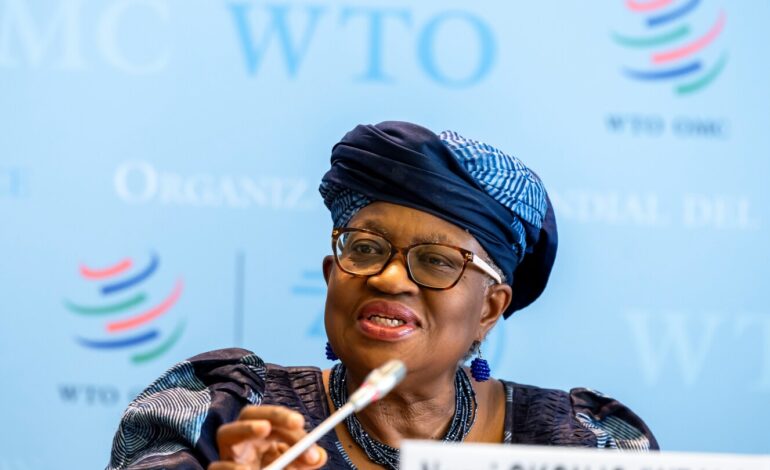WTO Boosts Trade Growth Prediction Amid AI Purchasing Surge

URGENT UPDATE: The World Trade Organization (WTO) has dramatically increased its forecast for global goods trade growth to 2.4% for this year, up from just 0.9% in August, following an unexpected surge in AI-related purchases and front-loaded imports in the U.S. The announcement made earlier today in Geneva signals significant shifts in international trade dynamics.
The WTO’s revised prediction marks a remarkable turnaround from April, when experts anticipated a decline of 0.2% in goods trade due to various economic pressures. This latest forecast reflects a robust first half of the year, driven primarily by soaring demand for artificial intelligence-related goods, including semiconductors, servers, and telecommunications equipment.
WTO Director-General Ngozi Okonjo-Iweala emphasized the role of developing countries in bolstering trade, stating, “Countries’ measured response to tariff changes, along with the growth potential of AI and increased trade among emerging economies, have helped ease trade setbacks.” This comes amid ongoing concerns about fluctuating tariffs, particularly those enacted by the Trump administration.
Significantly, the U.S. has seen a 13.2% annual surge in imports, particularly in pharmaceuticals and precious metals, as importers rush to stock up ahead of potential future tariffs. The WTO highlights that a staggering 42% of global trade growth this year stems from AI-related goods, far exceeding their typical 15% share of world trade.
The report also reveals that trade among developing nations, referred to as “South-South trade,” grew by 8% year-on-year in the first half of the year. This growth is particularly noteworthy as trade involving partners other than China rose by around 9%.
Despite the positive outlook for 2025 and 2026, where service exports are expected to grow at a slower pace of 4.6% and 4.4% respectively, the WTO has lowered its 2026 goods trade growth forecast to 0.5%, down from 1.8%. This adjustment reflects the ongoing uncertainties in the global market.
As the situation develops, stakeholders are urged to pay close attention to shifts in trade policies and AI market dynamics. The WTO’s findings underscore the interconnected nature of global trade and the pivotal role that technology, particularly AI, is playing in shaping economic landscapes worldwide.
Stay tuned for more updates on this evolving story and its implications for international trade.






